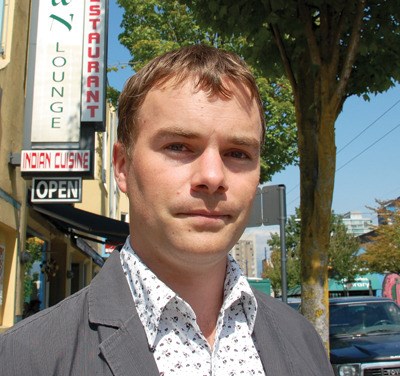It happened again last week.
A constituent walked into Spencer Chandra Herberts Denman Street office and presented a scenario thats become heartbreakingly familiar to the West End MLA. An elderly man was getting evicted because he couldnt pay the rent or at least not all of it.
As is often the case when these constituents present, the shortfall was the result not of poor financial planning but an unforeseen circumstance. This time it was a late-arriving cheque. He was a low-income senior so didnt have money to cover the rent while he waited for the cheque, Chandra Herbert recalled.
By the time the man came to him, an eviction order had already been upheld at the Residential Tenancy Branch tying Chandra Herberts hands. Occasionally, when constituents have come to him after realizing they wouldnt make rent, Chandra Herbert has been able to run interference with landlords and strike a deal.
But thats not a viable solution to a problem that continues to occur. Generally people only come to him when theyre desperate.
They come with a certain amount of shame, he said.
A possible solution could come in the form of a Â鶹´«Ã½Ó³»rent bank to supply short-term micro-loans and prevent those types of evictions.
A provincially supported program in Ontario, rent banks have started to make their way to B.C. with pilot projects up and running in Surrey, Prince George and Victoria. These provide anywhere from a few hundred bucks to a full months rent to people who fall short due to emergencies or other extenuating circumstances.
Chandra Herbert was heartened to see the City of Â鶹´«Ã½Ó³»adopt its new homelessness and housing strategy last month (which included plans for a rent bank) but disappointed that the provincial government seems disinterested in supporting the project.
So far, Rich Coleman, the provincial minister in charge of housing has made no commitment to financing rent banks.
However the ball is slowly rolling on getting one going in Vancouver, said Chandra Herbert, whos engaged in discussions with community partners such as the East Vancouver-based Network of Inner City Community Services Society (NICCSS), which has run a pilot rent bank out of Raycam Community Centre.
The non-profit StreeToHome foundation has also been approached, and the City of Â鶹´«Ã½Ó³»is already on board. City staff admit more support from the private and non-profit sector is needed for the projects success but its still unclear how much startup capital such a project would need.
Surreys rent bank got off the ground just over one year ago with an operating budget of $120,000 and about $40,000 available for loans, with funding provided from the Â鶹´«Ã½Ó³»Foundation, the Vancity Community Foundation and other partners.
To date, Surreys rent bank has provided 67 loans, preventing 180 people from winding up on the streets, said Peter Harnish, outreach worker with Newton Advocacy Group, the non-profit in charge of Surreys rent bank.
The maximum allowance for a single person is $1,200, while multi-person households qualify for a maximum of $1,600. Average loans tally about $850 a month, however Harnish said hes given loans out for as little as $117.
The landlord actually gave an eviction notice for that, he said. While admitting landlords shouldnt have to take a financial hit, Harnish said its in everybodys best interest to prevent those types of evictions, noting the social costs of homelessness are exponentially larger than any micro-loan.
It costs taxpayers an average of $55,000 per year, per person to provide social services to people living on the street, according to a B.C. auditor generals report from 2009. We want to prevent people from entering the system, Harnish said.
Loan applications are assessed and given out based on need and paid back over a two-year period. The Surrey rent bank charges 1.5 per cent interest that is refunded upon loan repayment and completion of a financial literacy workshop.
Harnish said the rent bank has been successful in getting funders to sign on for another year with the project, but beyond that Surrey will also be looking to the province to step in with permanent support.
As it stands, the rent bank doesnt even advertise its services because it would not be able to meet demand, Harnish said.
Chandra Herbert has no doubt a service would be similarly swamped in Â鶹´«Ã½Ó³»and is hoping senior government will heed the call.



